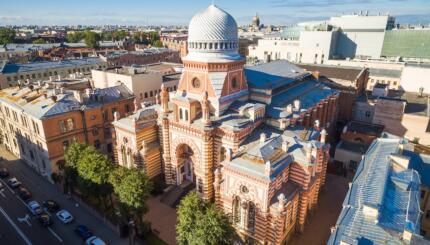Before there were Halliburton and Exxon-Mobil, there was United Fruit.
I’ve been spending a lot of my spare time over the last several months reading up on U.S. history, and one of the astonishing things that I’ve found is that before America allegedly/really (it’s not my place to say here) started to intervene in other countries on behalf of the oil industry, it in fact did do so on behalf of the fruit industry.
One of the best sources I’ve come across for info on this rather startling historical phenomenon is Stephen Kinzer‘s recently-released book, Overthrow.
One Russian-American Jew, Samuel Zemurray, played a significant part:
Samuel Zemurray (January 18, 1877-November 30, 1961) was a U.S. businessman. He made his fortune in the banana trade and founded the Cuyamel Fruit Company, which played a significant and controversial role in the history of Honduras. Zemurray later became head of the United Fruit Company.
Zemurray’s original name was Schmuel Zmurri. He was born in Kishinev, Bessarabia, Russia (present-day ChiÅŸinău, Moldova) to a poor Jewish family that emigrated to America when he was fourteen years old. Zemurray had no formal education. He entered the banana trade in Mobile, Alabama in 1895, at the age of eighteen. His early wealth was largely due to a very successful venture in New Orleans, Louisiana, where he bought the bananas that had ripened in the transport ships and then sold them locally. His success earned him the nickname “Sam the Banana Man.” By age twenty-one he had banked $100,000. He later bought a steamship and went to Honduras. (MORE)
Which, according to Kinzer, is where Sam first immersed himself into geopolitics:
Like many other American businessmen in Central America, Zemurray considered his land a private fiefdom. He resented having to pay taxes and abide by Honduran laws and regulations. That put him in conflict with President Miguel Dávila, who not only insisted that foreign businesses submit to taxation but was campaigning to limit the amount of land foreigners could own in Honduras … Zemurray decided that Dávila was now ripe to be overthrown, and with typical resolve set out to do the overthrowing himself.
President Bonilla handsomely rewarded the man who had placed him in power. Soon after taking office, he awarded Zemurray 10,000 hectares of banana land-about 24,700 acres-near the north coast. Later he added 10,000 hectares near the Guatemalan border. Then he gave Zemurray a unique permit allowing his businesses to import whatever they needed duty-free. Finally, he authorized Zemurray to raise a $500,000 loan in the name of the Honduran government, and use the money to repay himself for what he claimed to have spent organizing the revolution. With assets like these, it is no wonder that Zemurray soon became known as “the uncrowned king of Central America.” He was certainly the king of Honduras. After Bonilla’s death in 1913, he controlled a string of presidents. In 1925 he secured exclusive lumbering rights to a region covering one-tenth of Honduran territory. Later he merged his enterprises with United Fruit and took over as the firm’s managing director. Under his leadership, United Fruit became inextricably interwoven with the fabric of Central American life. According to one study, it “throttled competitors, dominated governments, manacled railroads, ruined planters, choked cooperatives, domineered over workers, fought organized labor and exploited consumers.”
This wasn’t the last time the Banana Man meddled in Central American affairs. According to the United Fruit Historical Society, whose purpose is “is to disseminate educational material about the history of the United Fruit Company and to gather historical information of the company in order to keep this knowledge for future generations,” Sam moved on to Guatemala:
After Zemurray retired in 1951, he remained as chairman of the executive committee of United Fruit. In that position it has been said that he had an important role in engineering the overthrow of the government of Guatemala in 1954, after the democratically elected President Jacobo Arbenz began expropriating the company’s plantations in order to follow his agrarian reform project. Zemurray led a campaign that portrayed Arbenz as a dangerous Communist in the American media. Working together with an advertisement company he distributed alarmist propaganda among the press and Congressmen in which he showed Guatemala as a foothold of the Soviet Union in the Western Hemisphere. This campaign was eventually successful, since the CIA sponsored a military coup against Arbenz, in which the rebels used United Fruit boats to transport troops and ammunition.
And, perhaps my favorite part (it’s fun when history is linked):
In 1961, United Fruit also provided two ships for the disastrous Bay of Pigs invasion of Cuba.
Sam’s Jewish identity led him to get involved in another part of the world, as well. He and his family gave to the Zionist movement as a result of their friendship with Chaim Weizmann.
At least Zemurry was “philan-tropic.”
Just a historical token for the day.


